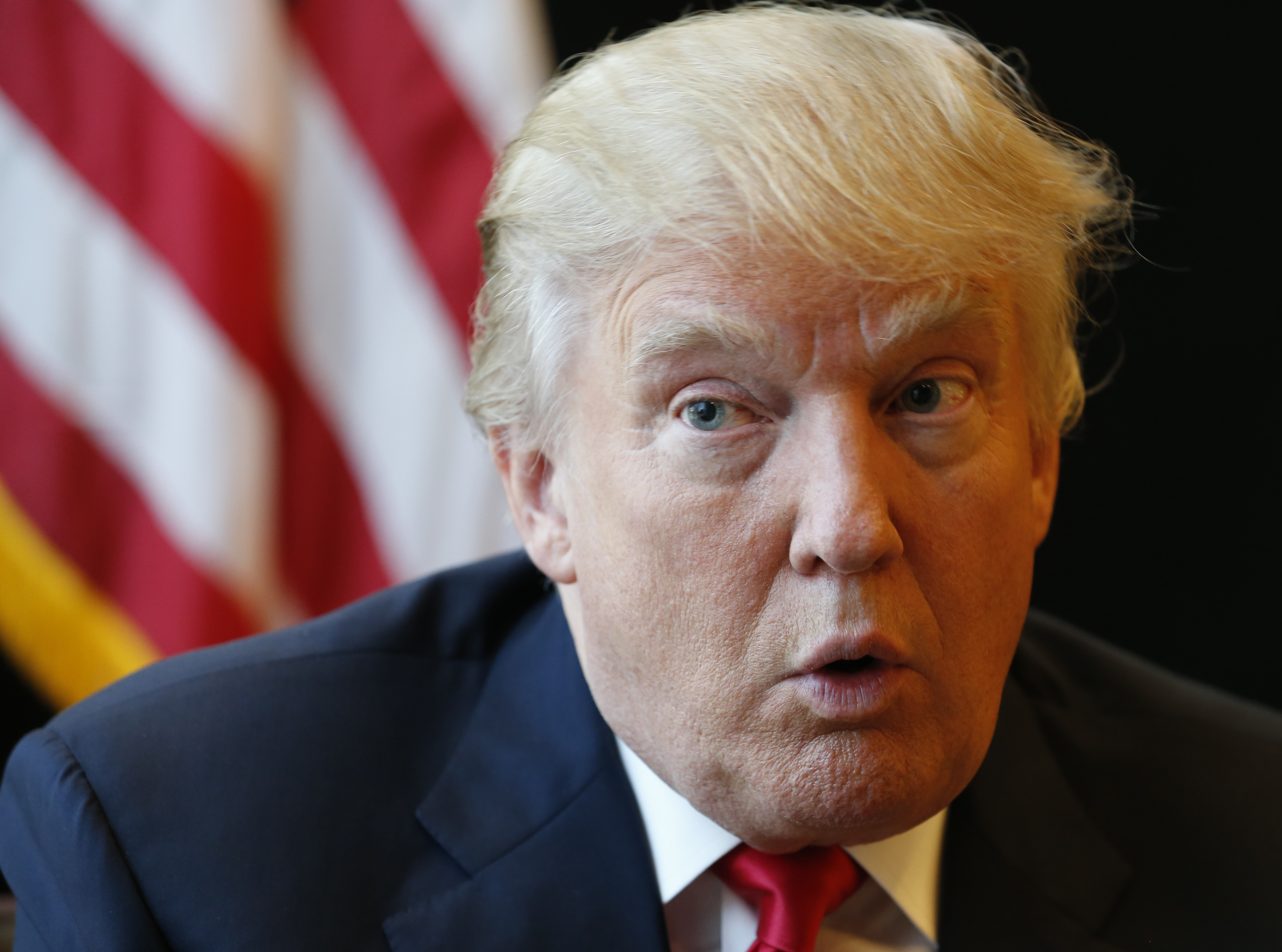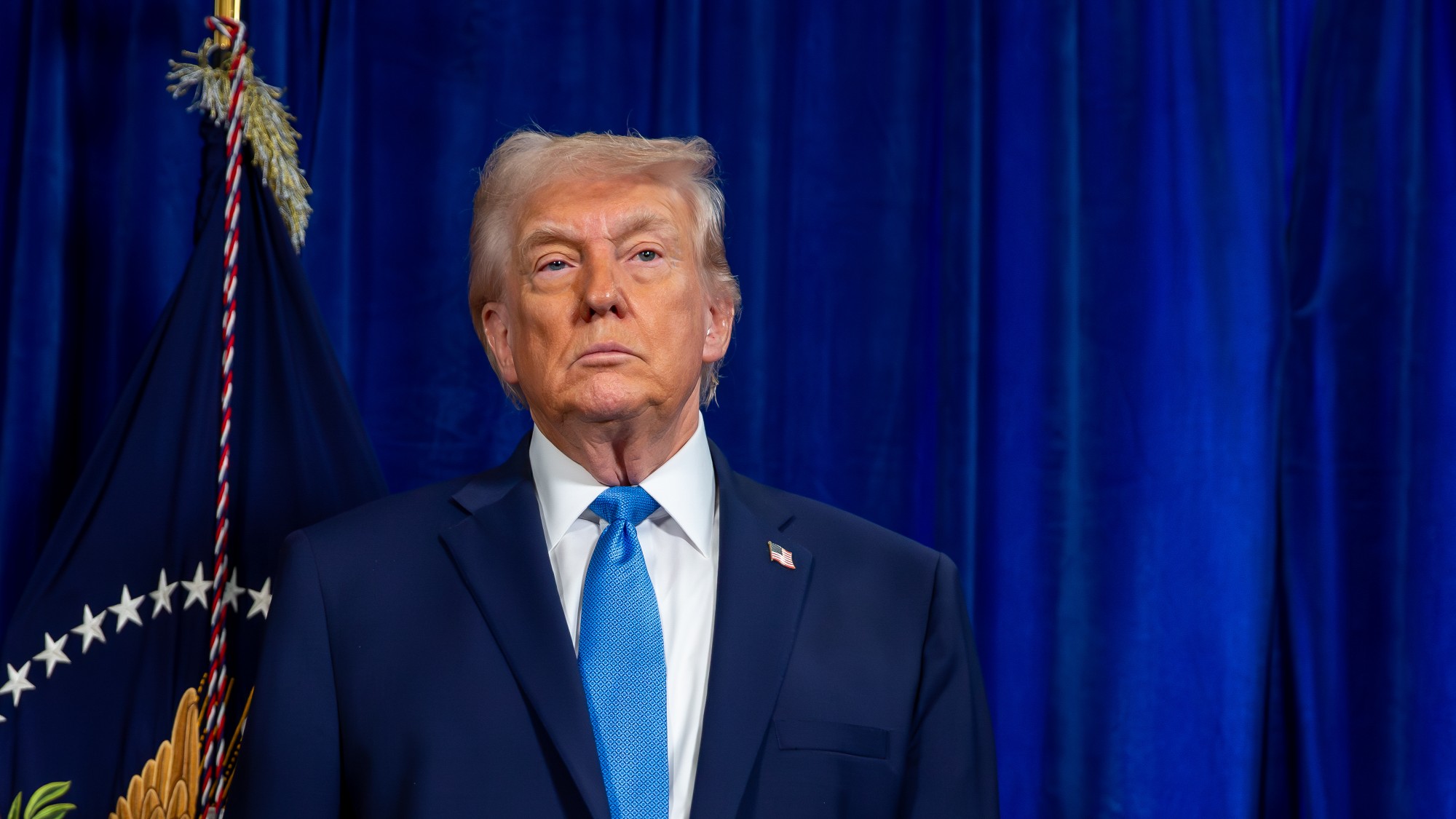The 5 tricks to interviewing Donald Trump
Ask him the question he fears most: How?


A free daily email with the biggest news stories of the day – and the best features from TheWeek.com
You are now subscribed
Your newsletter sign-up was successful
Matt Lauer came in for a heap of criticism last week after he presided over a "commander-in-chief forum" on NBC in which he grilled Hillary Clinton over her emails but lobbed softballs at Donald Trump. Critics found it particularly atrocious that Lauer allowed Trump to repeat a lie he has told many times before, that he supposedly opposed the Iraq War from the beginning, without correcting him. Lauer is hardly the first journalist Trump has flummoxed in the hundreds of interviews he has given since entering the presidential race last summer, but even a candidate bursting with bluster like Trump can be tamed, or at least forced to answer meaningful questions, if the interviewer is properly prepared.
Here's how to do it:
1. Prepare yourself for his most common lies. Trump makes this task a bit easier by repeating many of the same lies over and over, as with the question of his support for the Iraq War, his insistence that crime is at record levels, or his belief that America is the highest-taxed nation in the world. That enables an interviewer to look at the areas they plan to cover, then see if Trump is regularly lying about something having to do with each of those areas. If he pulls out one of his greatest hits, they ought to be ready to call him on it.
The Week
Escape your echo chamber. Get the facts behind the news, plus analysis from multiple perspectives.

Sign up for The Week's Free Newsletters
From our morning news briefing to a weekly Good News Newsletter, get the best of The Week delivered directly to your inbox.
From our morning news briefing to a weekly Good News Newsletter, get the best of The Week delivered directly to your inbox.
2. Ask him the question he fears most. Trump's most common promise comes in the form of a tautology. How will he create jobs? By creating jobs! How will he defeat ISIS? By defeating them! So the most important question to ask Trump is one of the simplest: How?
You'd be amazed at what that simple question can accomplish. It forces the candidate to move past talking points and into something more complex and difficult: how we translate goals into implementation, which is the difficult part of governing. If the candidate knows what he's talking about, the question will allow him to explain; if he doesn't, it will reveal his ignorance.
3. Keep demanding specificity. This isn't just about catching Trump in a "gotcha" or revealing the shallowness of his promises, although it can accomplish that. It's also because forcing candidates to be clear and specific gives voters a much better understanding of what they'll do if they're elected. So if Trump says that the Iran nuclear deal is one of the worst deals in human history, he should be asked exactly what part of the deal he objects to and why. If he says that crime is going to come to an end once he takes the oath of office, he should be asked exactly what steps he'll take to reduce crime, given that it's almost entirely a state and local responsibility. And so on. Sometimes, simply asking "What exactly does that mean?" when presented with a vague bit of sloganeering is enough to force the candidate (or their surrogates) to reveal whether they've thought through the issue at hand or not.
4. Probe into Trump's thinking. One of the benefits of the long campaign is that we can discern patterns in what the candidates say and believe, and these provide a window into their thinking. When they repeat something again and again, it's a sign that it's meaningful and worth exploring. For instance, whenever the issue of his admiration for Vladimir Putin comes up, Trump inevitably mentions that Putin called him "brilliant" (actually, the word Putin used translates better as "colorful" — it's not about intelligence). As Trump said at the forum with Matt Lauer, "If he says great things about me, I'm going to say great things about him." But why is that? Is Trump merely a stickler for the politeness that mutual compliments might represent? Or is he a sucker for flattery? This is something we ought to know.
A free daily email with the biggest news stories of the day – and the best features from TheWeek.com
That applies to a range of things we've learned about him. For instance, why is it so important to him to get back at people who criticize him? Why does he find it necessary to insist again and again that he's really smart, something virtually no genuinely smart person ever does? By now we know enough about Trump that these strange and often fascinating elements of his personal psychology have revealed themselves.
5. Don't give in to stonewalling. When they get to interview a presidential candidate, many journalists come in with a long list of questions they want to ask, and when the candidate evades one, they're tempted to move on to the next. Trump is well aware of this fact, which is why he'll often offer up some bit of meaningless nonsense ("It's going to be great, believe me") secure in the knowledge that even if he has no idea what he's talking about, the conversation will quickly move on. So journalists shouldn't be afraid of tossing out their questions and sticking to one topic if it's important enough. That's what Jake Tapper did a few months ago when Trump was attacking the judge presiding over one of the Trump University fraud cases, and the result was a revealing look into Trump's thinking about race.
Whatever else you might say about Donald Trump, he's been accessible to the media, perhaps because he thinks there's no such thing as bad publicity (a proposition he's certainly putting to the test). So there will be many more opportunities for reporters to get the most fruitful material out of the time they get with him. And all these suggestions apply to Hillary Clinton, too.
Skilled politicians like them are often able to weasel their way out of the questions they don't want to answer, but it isn't that hard to get something more out of them — if you understand how they'll try to keep you from doing it.
Paul Waldman is a senior writer with The American Prospect magazine and a blogger for The Washington Post. His writing has appeared in dozens of newspapers, magazines, and web sites, and he is the author or co-author of four books on media and politics.
-
 Touring the vineyards of southern Bolivia
Touring the vineyards of southern BoliviaThe Week Recommends Strongly reminiscent of Andalusia, these vineyards cut deep into the country’s southwest
-
 American empire: a history of US imperial expansion
American empire: a history of US imperial expansionDonald Trump’s 21st century take on the Monroe Doctrine harks back to an earlier era of US interference in Latin America
-
 Elon Musk’s starry mega-merger
Elon Musk’s starry mega-mergerTalking Point SpaceX founder is promising investors a rocket trip to the future – and a sprawling conglomerate to boot
-
 The billionaires’ wealth tax: a catastrophe for California?
The billionaires’ wealth tax: a catastrophe for California?Talking Point Peter Thiel and Larry Page preparing to change state residency
-
 Bari Weiss’ ‘60 Minutes’ scandal is about more than one report
Bari Weiss’ ‘60 Minutes’ scandal is about more than one reportIN THE SPOTLIGHT By blocking an approved segment on a controversial prison holding US deportees in El Salvador, the editor-in-chief of CBS News has become the main story
-
 Has Zohran Mamdani shown the Democrats how to win again?
Has Zohran Mamdani shown the Democrats how to win again?Today’s Big Question New York City mayoral election touted as victory for left-wing populists but moderate centrist wins elsewhere present more complex path for Democratic Party
-
 Millions turn out for anti-Trump ‘No Kings’ rallies
Millions turn out for anti-Trump ‘No Kings’ ralliesSpeed Read An estimated 7 million people participated, 2 million more than at the first ‘No Kings’ protest in June
-
 Ghislaine Maxwell: angling for a Trump pardon
Ghislaine Maxwell: angling for a Trump pardonTalking Point Convicted sex trafficker's testimony could shed new light on president's links to Jeffrey Epstein
-
 The last words and final moments of 40 presidents
The last words and final moments of 40 presidentsThe Explainer Some are eloquent quotes worthy of the holders of the highest office in the nation, and others... aren't
-
 The JFK files: the truth at last?
The JFK files: the truth at last?In The Spotlight More than 64,000 previously classified documents relating the 1963 assassination of John F. Kennedy have been released by the Trump administration
-
 'Seriously, not literally': how should the world take Donald Trump?
'Seriously, not literally': how should the world take Donald Trump?Today's big question White House rhetoric and reality look likely to become increasingly blurred
